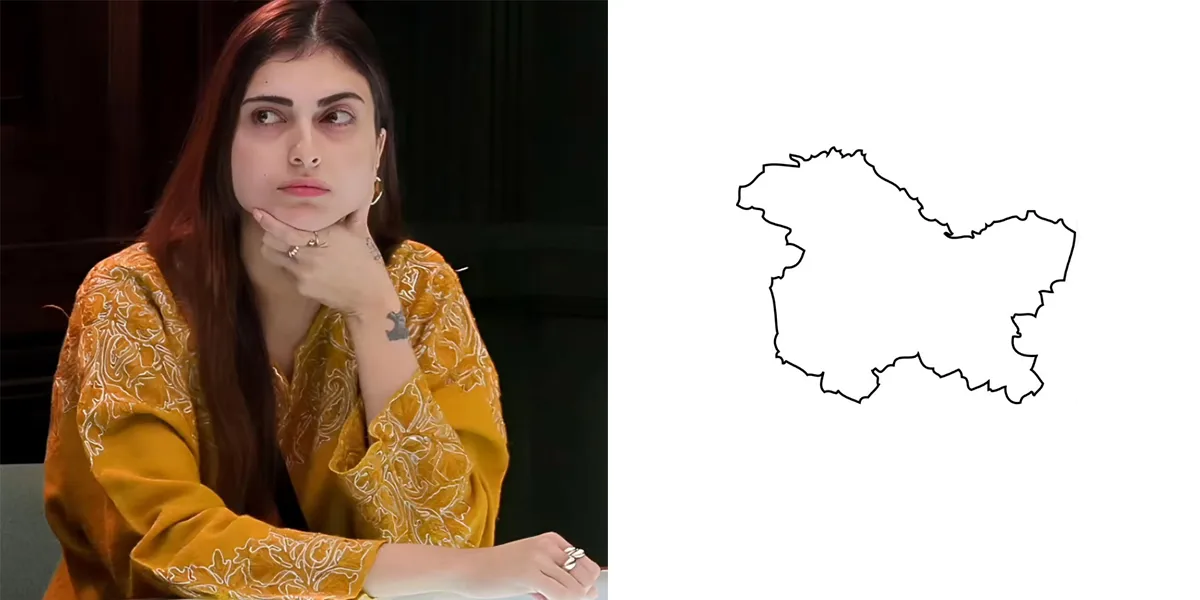People
Farhana Bhatt in Bigg Boss: Does She Represent Kashmir?
When Kashmiri contestant Farhana Bhatt entered Bigg Boss, the news sparked excitement — and soon after, a wave of debate. Some saw her as a strong, fearless Kashmiri woman finally breaking stereotypes. Others felt her loud behavior and confrontational style clashed with the grace and warmth Kashmiris are known for.
So the question remains:
Does Farhana Bhatt truly represent Kashmir — or is she simply playing her game like any other contestant?
The Show’s Format and Its Demands
Before judging any contestant, it’s important to understand the nature of Bigg Boss itself. The show thrives on conflict, chaos, and controversy — qualities that keep viewers hooked and ratings high. Over the years, it has rewarded participants who are outspoken, dramatic, and unpredictable.
In that sense, Farhana’s behavior may be less about her personality and more about the format of the show. Bigg Boss encourages contestants to be loud, reactive, and emotional; those who stay calm or reserved are often voted out early. Expecting cultural representation in such a space might be misplaced — after all, the show is designed for entertainment, not identity.
The Representation Question
Still, for many Kashmiris watching her on national television, separating her individual conduct from her roots is not easy. Viewers felt a mix of pride and disappointment — pride in seeing a Kashmiri face on a big platform, and disappointment that her portrayal might not align with the elegance and composure traditionally associated with Kashmiri women.
Some viewers argued that in her attempt to appear strong and independent, she sometimes crossed into rudeness and aggression. They believed that one can be confident and outspoken without resorting to insults or disrespect. Others, however, defended her, saying that society often dislikes strong women who speak their mind, and that Farhana is simply being authentic and refusing to play safe.
Divided Reactions
The online reaction has been sharply divided:
- Supporters say she is breaking stereotypes and showing the nation that Kashmiri women are confident, fearless, and capable of standing their ground. They appreciate her strength, individuality, and ability to dominate a competitive space like Bigg Boss.
- Critics feel she has tarnished Kashmir’s image through aggressive language and questionable behavior. Some even argue that she plays the “victim card” or exaggerates societal issues for sympathy.
A few voices have taken a more neutral stance, reminding everyone that no single person can represent an entire community. Just as one contestant’s actions don’t define all Kashmiris, expecting Farhana to be the “face” of Kashmiri culture may also be unfair.
Beyond Bigg Boss: What Representation Really Means
This discussion opens up a deeper reflection:
What does it truly mean to represent a place or a people?
Is every Kashmiri who gains public attention automatically a representative of their homeland? Or can they simply be individuals living their own truth, without carrying the weight of cultural symbolism?
While some believe public figures have a duty to reflect the values of their roots, others argue that individuality should come first. After all, Bigg Boss is a reality show built on performance and survival, not a platform for cultural diplomacy.
The Takeaway
Farhana Bhatt’s time on Bigg Boss has done more than just entertain; it has sparked conversations about identity, representation, and the evolving image of Kashmiri women in the public eye.
Whether seen as bold or brash, empowering or excessive, she has made one undeniable impact — she has started a dialogue. A dialogue about how Kashmiri women wish to be seen, and how far public opinion still swings between tradition and modernity.
Perhaps, in the end, Farhana isn’t representing Kashmir or anyone else —
she’s representing herself. And maybe that’s what true individuality is all about.

